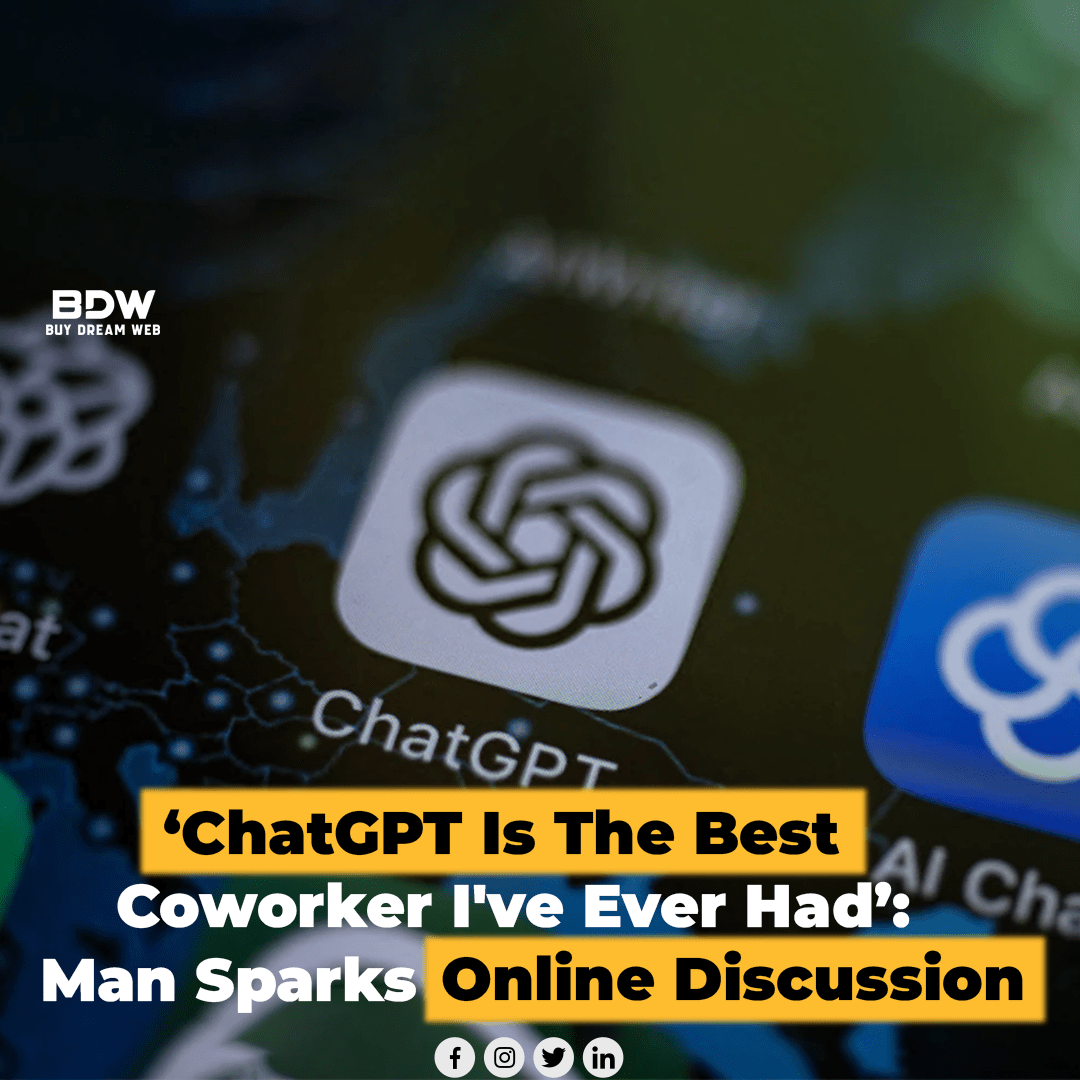Beyond Colleagues: Can AI Become Our Ideal Coworker? A Discussion Sparked by a Viral Post
A recent social media post has ignited a fascinating discussion about the evolving nature of work and the potential of artificial intelligence (AI) as a coworker. The post, simply stating “ChatGPT is the best coworker I’ve ever had,” has resonated with many, prompting a wave of online debate and introspection. This blog delves into the reasons behind this sentiment, explores the potential benefits and drawbacks of AI coworkers, and ponders the future of human-AI collaboration in the workplace.
Understanding the Appeal: Why Might Someone Prefer an AI Coworker?
There are several reasons why someone might find an AI like ChatGPT to be an ideal coworker:
- Tireless Efficiency: AI models can work tirelessly, analyzing data, generating reports, and completing tasks around the clock without breaks or fatigue. This unwavering dedication can be a boon for fast-paced work environments.
- Unwavering Objectivity: AI systems are not susceptible to emotions or biases. They can provide impartial feedback, analyze situations logically, and offer data-driven insights, potentially leading to better decision-making.
- Boundless Knowledge: Large language models like ChatGPT have access to vast amounts of information and can readily retrieve and process relevant data. This can be invaluable for research, brainstorming sessions, and fact-checking.
- 24/7 Availability: Need help with a task at 3 am? No problem. AI assistants are readily available at any time, offering a level of accessibility that human colleagues can’t always match.
Beyond the Hype: Challenges and Considerations of AI Coworkers
While the idea of an AI coworker might seem appealing, there are crucial aspects to consider:
- Lack of Creativity and Emotional Intelligence: AI systems currently struggle with tasks requiring genuine creativity, empathy, or emotional intelligence. These “soft skills” are still very much the domain of human workers.
- Over-reliance and Automation Anxiety: An overdependence on AI for tasks could lead to a decline in certain human skills and contribute to automation anxiety among workers.
- Ethical Considerations and Bias: Like any AI tool, large language models can perpetuate existing biases in the data they are trained on. Ensuring fairness and ethical use of AI in the workplace is paramount.
- The Human Connection: The social interaction and camaraderie fostered by human colleagues is irreplaceable. While AI can be a valuable tool, it shouldn’t come at the expense of human connection and collaboration.
The Future of Work: A Human-AI Partnership
The reality is that AI coworkers are not here to replace us; they are here to augment our capabilities. The future of work might lie in a collaborative environment where humans and AI work together, each leveraging their unique strengths:
- Humans Provide Direction and Strategy: While AI excels at data analysis and task completion, human judgment and strategic thinking will remain crucial for setting goals and driving innovation.
- AI Handles Repetitive Tasks: Freeing up human workers from repetitive tasks allows them to focus on more creative, strategic endeavors that require critical thinking and emotional intelligence.
- AI as a Powerful Tool: Consider AI as a powerful tool in your arsenal, offering insights, data analysis, and automation capabilities that can significantly enhance your work output.
A Conversation Starter: The Road Ahead
The viral post about ChatGPT highlights the growing potential of AI as a collaborator in the workplace. However, it also underscores the need for a thoughtful discussion about the role of AI in the future of work. Here are some key questions to consider:
- How can we ensure that AI complements and augments human capabilities, rather than replacing them?
- What skills and training will be necessary for humans to thrive in a workplace alongside AI coworkers?
- How can we develop ethical guidelines and regulations to ensure fair and responsible use of AI in the workplace?
As AI technology continues to evolve and integrate into our professional lives, fostering a healthy human-AI partnership will be crucial. By embracing the strengths of both human and artificial intelligence, we can unlock a future of work that is not only efficient but also fosters creativity, innovation, and human connection. The conversation started by a simple social media post is a critical one, pushing us to consider how we can best navigate the ever-changing landscape of work in the age of AI.
Article Link: https://www.chiangraitimes.com/

 +44 747720 4635
+44 747720 4635


Comments are closed